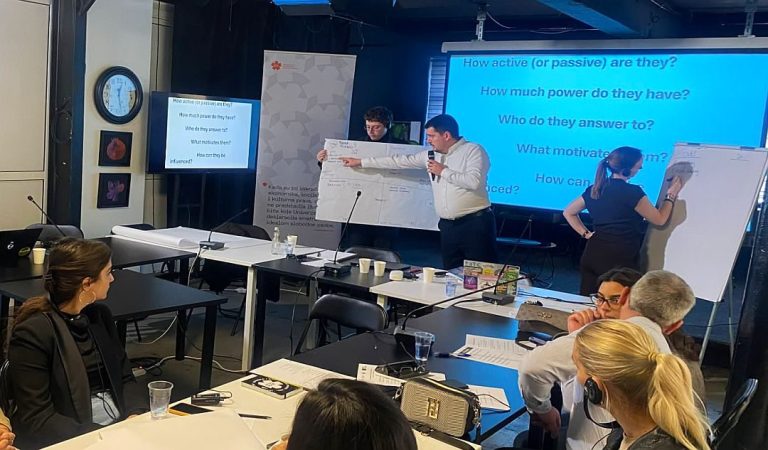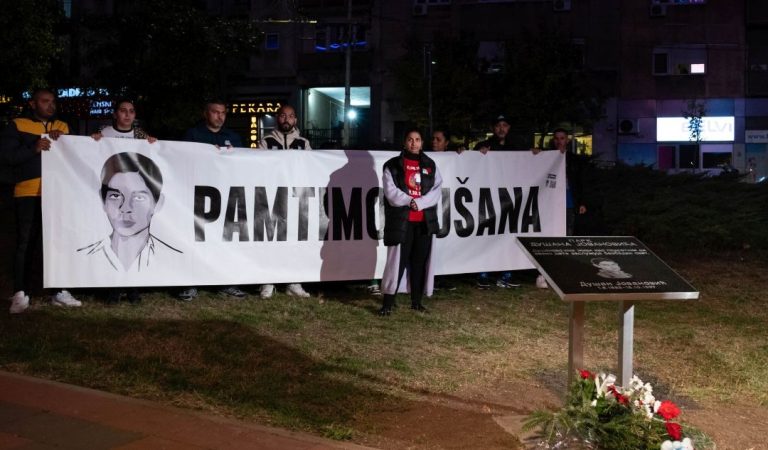In the process of adopting the new Social Protection Strategy, which has been pending for more than a decade, the state would have to include those who depend on the social protection system.
This is one of the messages from Nađa Marković, a member of the legal team of Initiative A 11, at the just-held debate “Initiative for the Adoption of the Social Protection Strategy”, which was organized by the “Center for Democracy” Foundation on April 2, with the aim of advocacy for the adoption of the Social Protection Strategy in the Republic of Serbia.
Citizens of Serbia live in a growing danger of poverty and with an increasing need for services from the social protection system. The A 11 Initiative team regularly legally helps people who cannot “make ends meet” and constantly point out problems with the state apparatus, but there is no one to listen to these people.
That is why, according to Nađa Marković, it is crucial that the beneficiaries of the social protection system are involved in the process of adopting the long-awaited Social Protection Development Strategy, which should be the umbrella strategic document of the Republic of Serbia for reducing poverty rate and improving living conditions and living standards.
“Initiative A 11, together with the Institute for Philosophy and Social Theory, conducted a series of participatory forums, i.e. civil assemblies, in which, at the level of Belgrade, Šabac and Novi Sad, we included beneficiaries of social benefits – together with them and social workers, we went through the provisions of the Law on social protection and the conditions for exercising the right to cash social assistance, as a typical and most frequently represented benefit. Otherwise, their inputs will be presented legally in the proposals for amending the Social Protection Act”, stated Marković and added that a similar, participatory model can also be applied when adopting a new strategy, where user impressions could influence the content of the act and make it more useful for the community.
She added that the most vulnerable citizens of Serbia do not have huge demands regarding their position.
“It really takes very little to make their lives better. When you look at the conditions for financial social assistance, you realize that even for that small and insufficient amount, the beneficiary, for example, does not have a car. This is very problematic if you live in a remote place or have a sick family member”, said Marković.
As she emphasized, we have to face the devastating effects of the two-year-old implementation of the Law on the Social Card, which deleted more than 44,000 of the poorest citizens of Serbia from the social protection system within the last two years.
“We are closely monitoring the implementation of this law, and the fact that every fifth beneficiary is left without social assistance is really worrying. This is in no way compatible with the current data on poverty, i.e. it is clear that these people did not suddenly get out of poverty, but there are errors in the register, in this system, and we persistently point out to the authorities that it is contrary to reason that so many people abused the social protection system”, Nađa Marković concluded.
Serbia has a Law on Social Protection that was adopted back in 2011. Since then, there is not even a valid Social Protection Strategy, which was adopted in 2005 and which maps the then-existing problems in the social protection system. Reading that document, one can conclude that Serbia has made almost no progress in approaching citizens on the margins of society – that approach has become even less humane.
In Belgrade, April 3, 2024
Photo: Center for Democracy Foundation



